There was much to enjoy in every department of Duchy Opera’s latest production of Otto Nicolai’s opera buffa, The Merry Wives of Windsor, which was imaginatively directed by Angela Agutter Thomas: singing, acting, staging, costumes and accompaniment.
As in previous years, including their last very successful production of La Traviata, the company wisely invited professionals from elsewhere to join local talent for roles they cannot fill. Richard Woodall was an impressive Mr Page, and especially noteworthy, Matthew Palmer as the suspicious Mr Ford.
Whether the soprano professional, Caroline Childe, could be classed as a visitor, we shall hopefully see now that she has come here to live after a distinguished career but as Mistress Ford, she has possibly the largest role in the opera and her singing and acting were superb.
The other ‘out of county’ newcomers for this production were the tenor Arthur Swan, as the penniless lover, Fenton, who in the final scene gets to marry the Pages’ daughter, Anne, sung by Rachel Phillips. Their duet charmingly contributed to the happy finale.
Others from the company who effectively completed the cast were Sue Lancaster as Mistress Page (her duet with Caroline in Act 1 was justly applauded); the alto Sheila Collins took the traditional bass role (not as a singer!) and was splendidly foppish as the French dandy, Dr Caius, wearing an extraordinary, colourful costume. Her rival for Anne’s hand was Slender, laudably sung by the tenor Bruce Cross. Completing the cast there was, almost inevitably, John Hobbs as the larger than life, Falstaff. Despite the indignities he suffers at the hands of the scheming Wives, he clearly enjoyed himself. He seems to have been in the company for ever and never fails to impress in the variety of roles he has taken. It is not only his acting and fine bass voice that commends him, but his diction. One can always hear every word – a lesson for many others in the company. The musical director, Paul Drayton, intends to put down the baton after this; he will be difficult to replace. We may see him in performances as the conductor, but his work beforehand in rehearsing the soloists and especially the chorus has always been thorough.
Patiently getting them to sing with confidence and robustly resulted in the best performance that I can remember. The score for two electronic pianos provided a very suitable substitute for the orchestra well executed by Antony Trodd at the top end and Suzanne Brodie for the bass.
The Edwardian (?) costumes were fitting, colourful for Falstaff and especially for the French dandy, Dr. Caius. For a touring production, visiting smaller venues than the Burrell Theatre, the scenery, well lit, was imaginative and adequate (Sheila and Paul Collins). The central tree, made barren with the foliage removed for the ‘spirits’ was ingenious. It was, however, this final scene in Windsor forest that was the weakest in the direction with too many spirits for the stage, however spookily lit, and the movements of Falstaff, Slender and Dr Caius lacked conviction. But overall, this was a memorable production in which the whole company can be proud.
Eric Dare
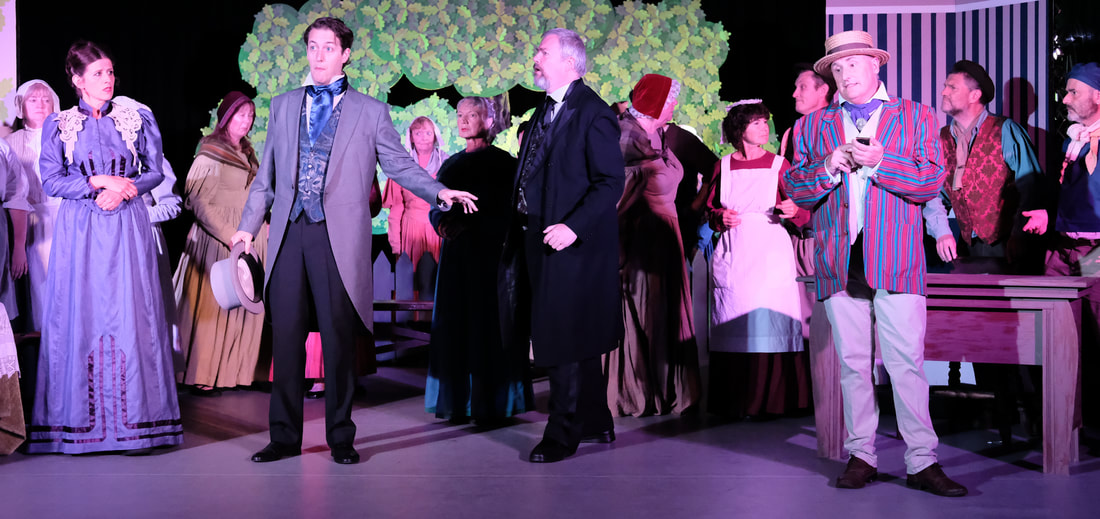
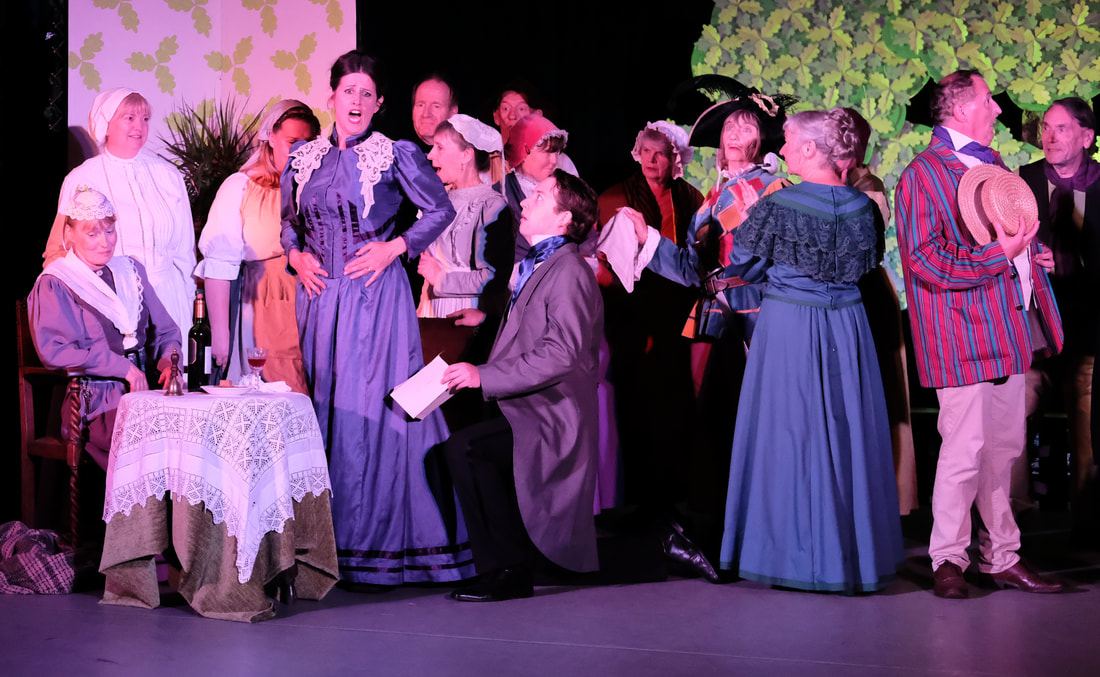
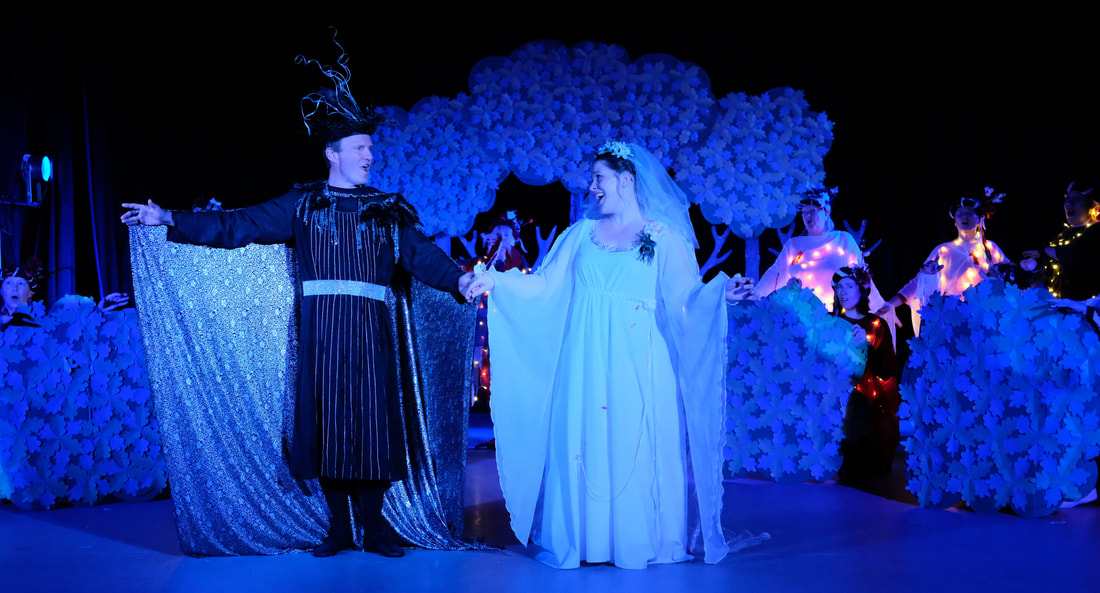
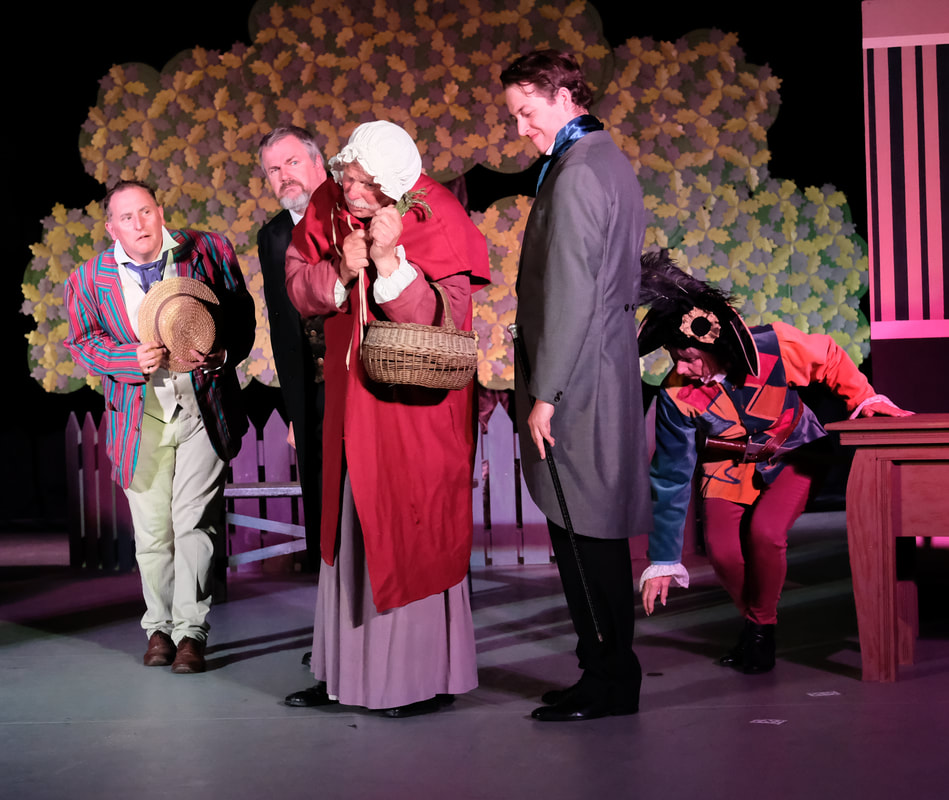
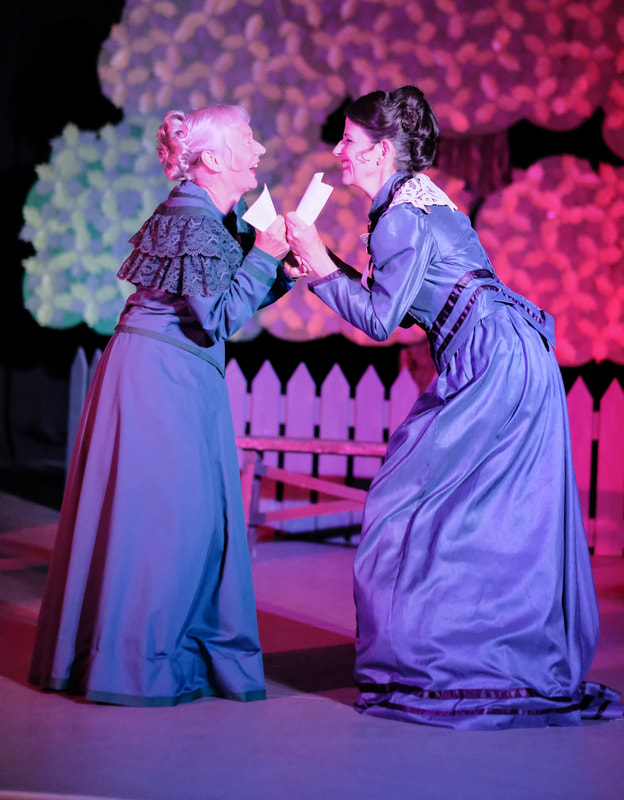
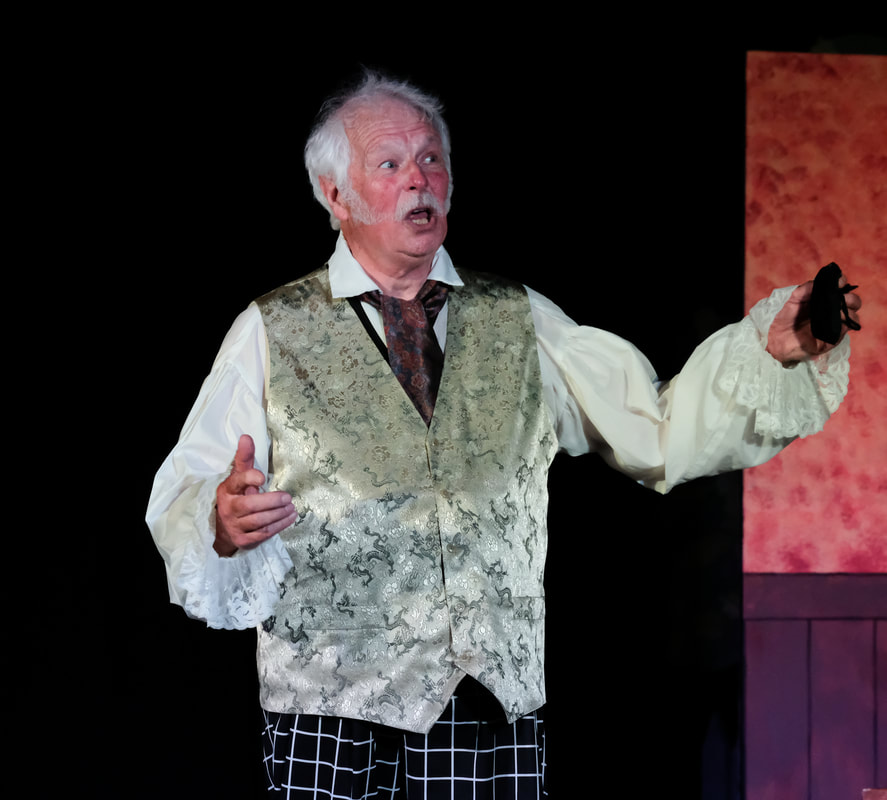
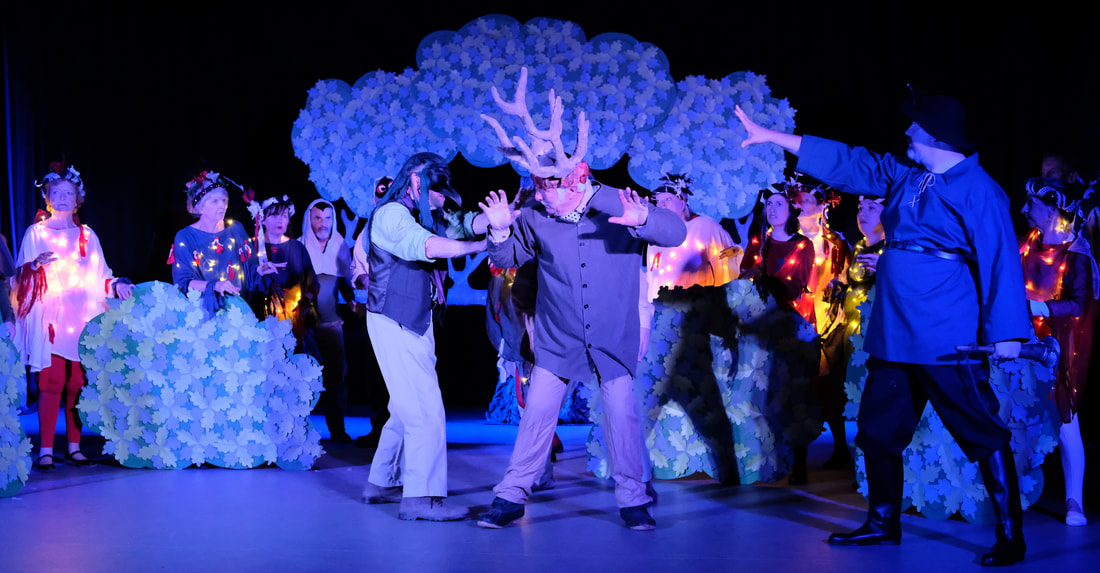
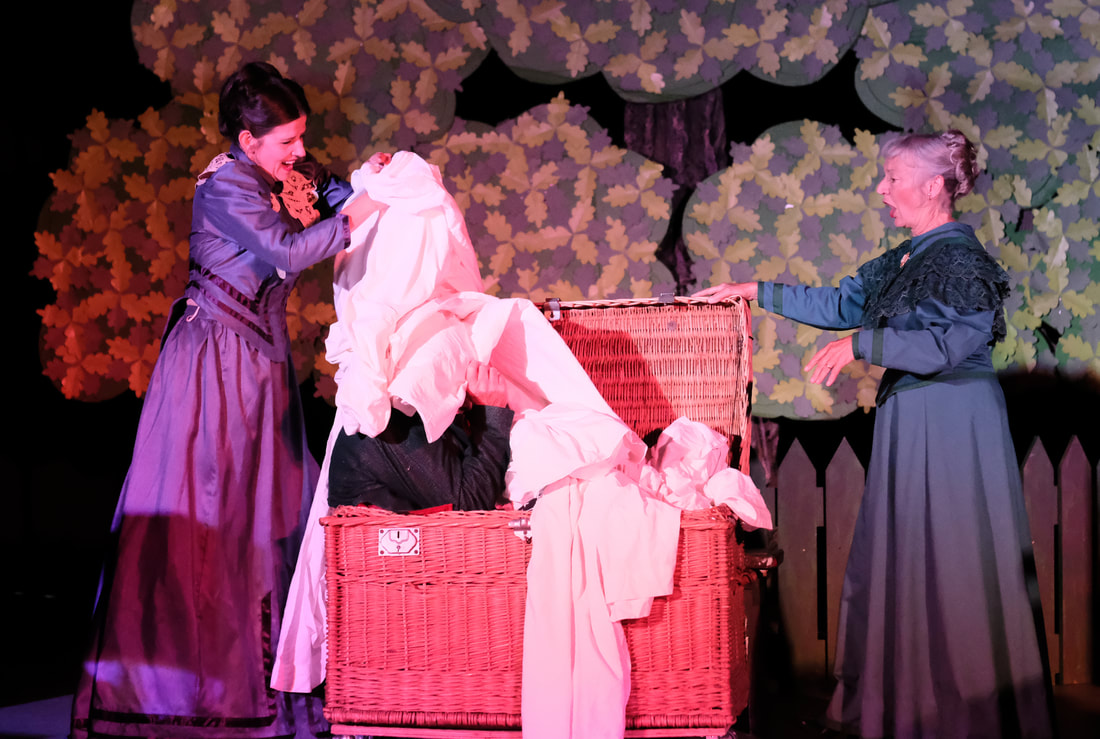
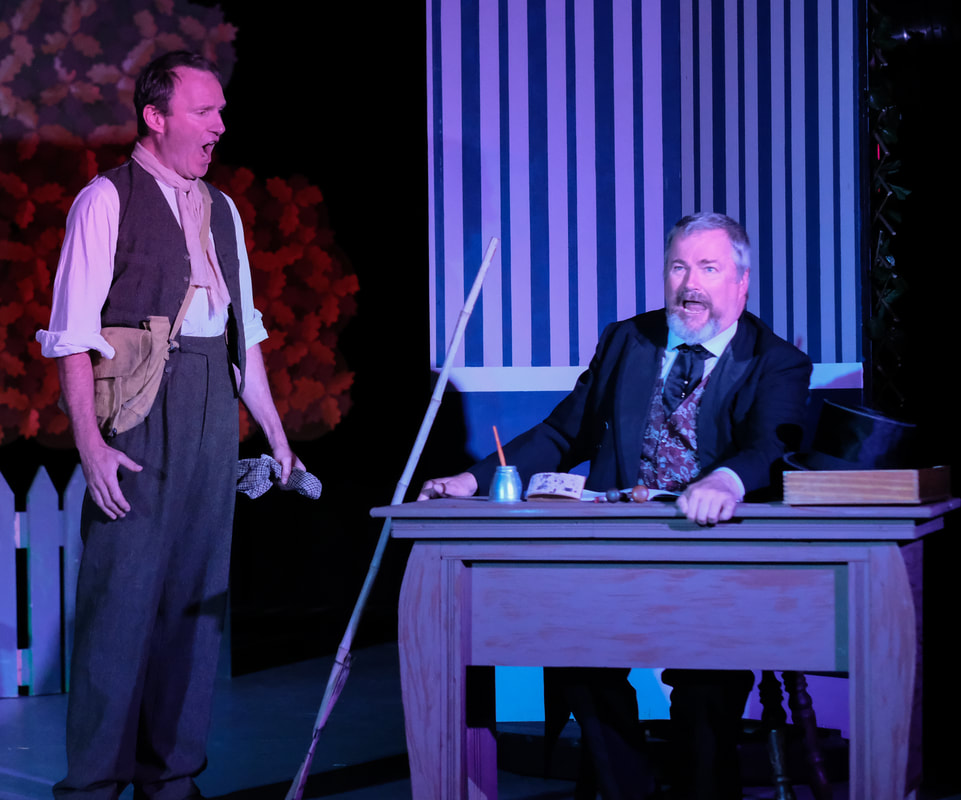
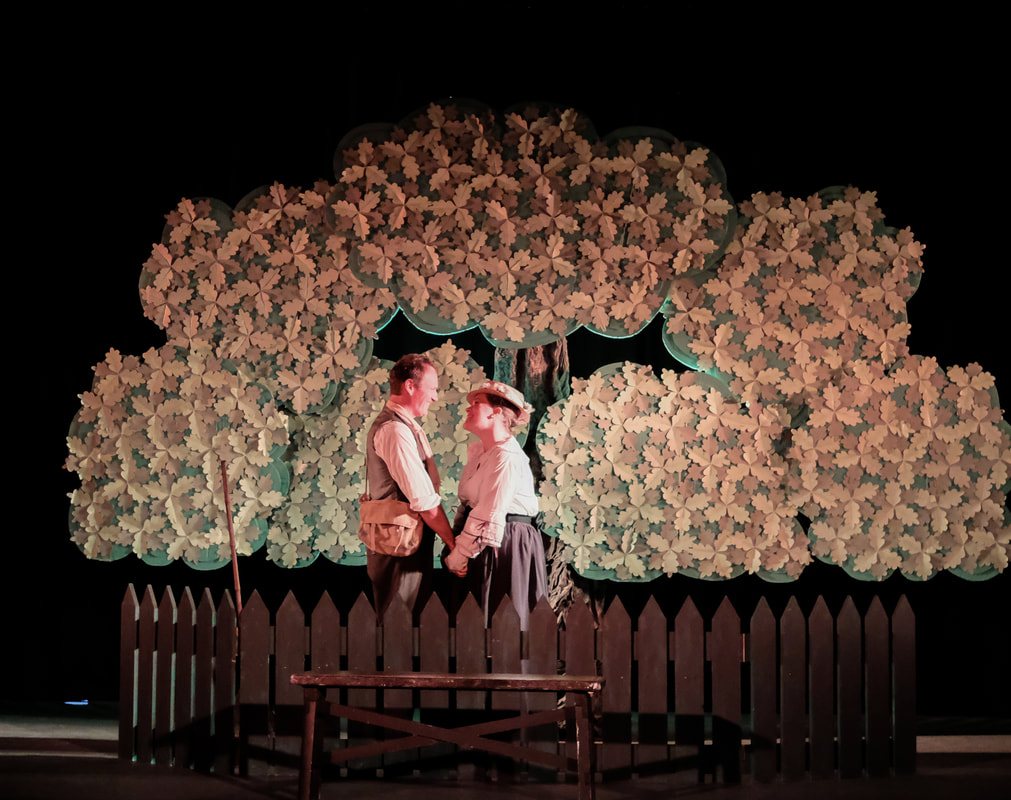
 RSS Feed
RSS Feed
